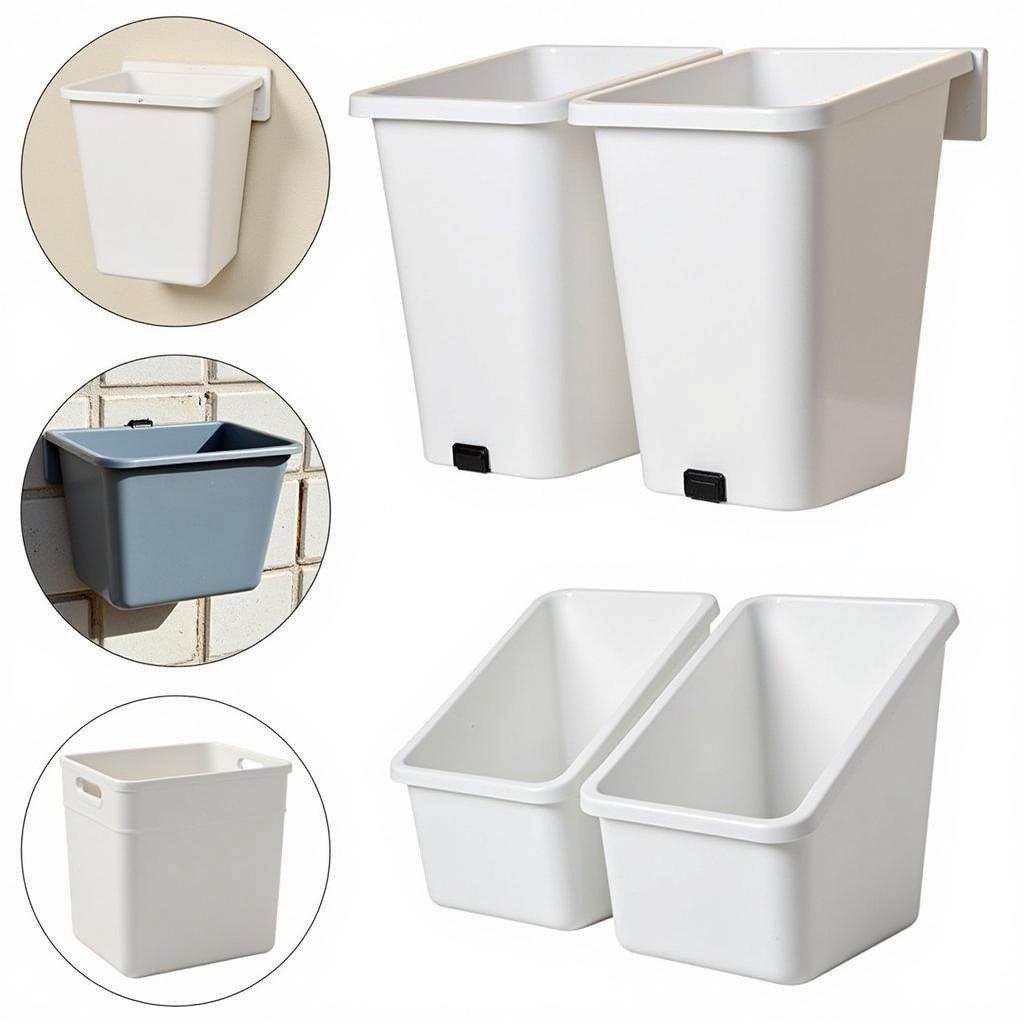Choosing the Right Small Feed Bins
November 26, 2024Small Feed Bins are essential for anyone raising livestock, especially in smaller spaces or when managing specific dietary needs. Whether you’re tending to chickens, rabbits, or other small animals, choosing the right feed storage solution can make a world of difference in maintaining feed freshness and minimizing waste. This guide will help you understand the key factors to consider when selecting small feed bins.
 Small Feed Bins for Chickens
Small Feed Bins for Chickens
Understanding Your Needs for Small Feed Bins
Before diving into the specifics of different small feed bins, it’s crucial to assess your individual requirements. How much feed do you typically use? What type of feed are you storing? Where will the bin be located? These questions will help narrow down your options. For instance, if space is limited, a wall-mounted small feed bin might be ideal. If you live in a particularly humid climate, airtight storage becomes a priority.
Materials Matter: Durability and Pest Control
Small feed bins come in various materials, each with its own pros and cons. Galvanized steel is a popular choice due to its durability and resistance to pests. Plastic bins offer lightweight portability and easy cleaning, while wooden bins provide a classic aesthetic but require more maintenance. Consider the climate and potential pest pressures in your area when making your decision.
Keeping Feed Fresh: Airtight vs. Ventilated
A critical consideration is whether you need an airtight or ventilated small feed bin. Airtight bins are excellent for preventing moisture and pests from spoiling the feed, especially in humid environments or when storing feed for extended periods. Ventilated bins, on the other hand, allow for better airflow, which can be beneficial for certain types of feed that are prone to molding.
Sizing Up Your Small Feed Bins: Capacity and Accessibility
The size of your small feed bin should correspond to your consumption rate and the number of animals you’re feeding. Too small, and you’ll be constantly refilling; too large, and the feed may become stale before it’s used. Consider the ease of access as well. Can you easily reach the feed inside, and is the opening large enough for your scoop?
Easy Access: Features for Convenience
Certain features can enhance the usability of your small feed bin. A sliding lid or hinged top makes refilling convenient, while a built-in measuring cup or scoop helps with portion control. Some bins even come with wheels for easy mobility. Think about the features that would make your daily feeding routine more efficient.
Keeping it Clean: Maintenance and Hygiene
Regular cleaning is crucial to prevent mold and bacterial growth in small feed bins. Choose a bin that is easy to clean and disinfect. Smooth surfaces are easier to wipe down than those with crevices where feed can get trapped.
Conclusion: Investing in the Right Small Feed Bins for Long-Term Benefits
Investing in the right small feed bins is a small investment that pays off big in the long run by preserving feed quality, reducing waste, and simplifying your feeding routine. By considering your specific needs, the materials, size, and features, you can find the perfect solution for your small livestock. Remember to choose small feed bins that fit your specific needs and contribute to the health and well-being of your animals.
Expert Insights:
- Dr. Emily Carter, DVM: “Proper feed storage is crucial for animal health. Choosing the right small feed bin can significantly reduce the risk of feed contamination and spoilage.”
- John Miller, Experienced Farmer: “I’ve found that galvanized steel bins are the most durable and pest-resistant option for storing feed, especially in outdoor environments.”
- Sarah Jones, Animal Nutritionist: “Consider the specific dietary needs of your animals when choosing a feed bin. Some feeds require airtight storage, while others benefit from ventilation.”
FAQ:
- What is the best material for a small feed bin?
- How do I choose the right size feed bin?
- How often should I clean my feed bin?
- What are the benefits of using an airtight feed bin?
- Are there small feed bins designed for specific types of feed?
- Can I use a small feed bin outdoors?
- How do I prevent pests from getting into my feed bin?
For further assistance, please contact us at Phone Number: 0915117113, Email: [email protected], or visit our address: Hamlet 3, Binh An, Phu Thuong, Vietnam, Binh Phuoc 830000, Vietnam. We have a 24/7 customer support team.